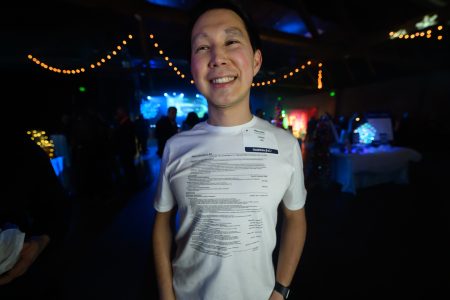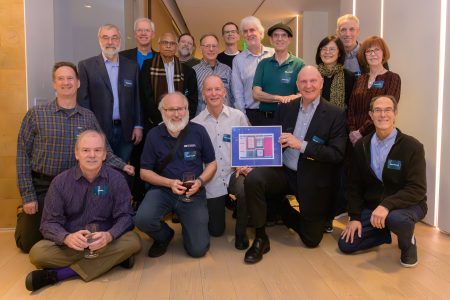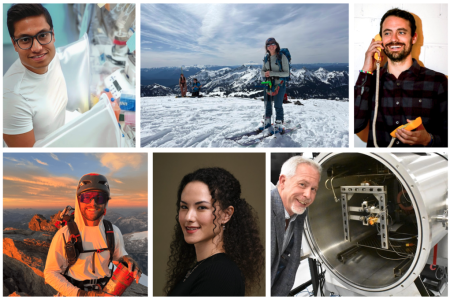The Entrepreneurial Flame: How New Visa Fees Could Impact Seattle’s Tech Ecosystem
In a development that’s sending ripples through America’s tech hubs, newly named TiE Seattle president Sonu Aggarwal has expressed deep concerns about President Donald Trump’s recently introduced $100,000 H-1B visa fee. As someone who traveled the immigrant entrepreneur path himself, Aggarwal’s perspective carries particular weight in Seattle’s technology community. “It feels very, very disruptive,” he noted, capturing the sentiment of many tech leaders who see the policy shift as potentially damaging to innovation and entrepreneurship in a region that has flourished partly due to its international talent. The H-1B visa program, which allows companies to hire highly skilled foreign workers in specialty occupations, has been a critical pipeline for tech talent in the United States. Tech giants like Microsoft and Amazon, which rank among the top companies for H-1B visa approvals nationally, could face significant financial implications from this policy change. More poignantly, the program has been the entry point for transformative leaders including Microsoft’s Satya Nadella and Alphabet’s Sundar Pichai, highlighting how immigrant talent has shaped America’s technological leadership.
While the White House has justified the fee increase by arguing that the H-1B program has been exploited by outsourcing firms replacing American workers with lower-paid foreign labor, the reality for Seattle’s vibrant tech ecosystem might be quite different. The Seattle area hosts one of the largest Asian Indian populations in the United States, with more than 40% of foreign-born IT workers in the region coming from India. This diversity has contributed significantly to the region’s tech success story. TiE Seattle, the organization Aggarwal now leads, exemplifies this contribution—its members have collectively created more than $16 billion in market value through their startups since the chapter’s founding in 2000. The organization began with roots in the South Asian community but has evolved to support entrepreneurship throughout the Seattle-area startup ecosystem, creating a bridge between diverse talents and market opportunities.
For Aggarwal, the visa fee increase represents more than just a financial hurdle; it symbolizes a fundamental threat to entrepreneurial spirit. Having founded three startups himself—including Unify Square, which was acquired for more than $152 million in 2021—he understands the delicate nature of entrepreneurial motivation. “That entrepreneurial spirit, that energy—it’s like a flame you want to keep growing and keep feeding,” he explained. “Such things have a way of almost snuffing out the flame.” This metaphor captures the vulnerability of innovation in the face of policy uncertainty. The new H-1B fee could prove especially challenging for smaller startups with limited runway and cash reserves but ambitious talent needs. Unlike established tech giants that might absorb such costs, emerging companies often operate on tight margins where an additional $100,000 per skilled worker could make hiring international talent prohibitively expensive.
The predictability of the business environment plays a crucial role in entrepreneurial decision-making, as Aggarwal’s own journey illustrates. After graduating from MIT, he might have taken a safer corporate path had he anticipated significant barriers to entrepreneurship. Instead, in a relatively stable policy environment, he founded Flash Communications, which was eventually acquired by Microsoft, launching a successful career as a serial entrepreneur. This pattern repeats across the tech landscape—immigrants who came to America for education often stay to build companies, creating jobs and innovation that benefit the broader economy. The drastic change to H-1B visa costs introduces uncertainty that could discourage this risk-taking. For many potential founders, the calculation might shift toward safer career paths rather than the entrepreneurial journey that has powered so much of America’s technological advancement.
Despite these challenges, Aggarwal sees a path forward through community support and adaptation. As the new president of TiE Seattle, he plans to continue the organization’s work helping entrepreneurs navigate shifting visa policies while expanding its reach beyond its South Asian roots to serve the broader startup community. This approach recognizes that immigration policy affects the entire innovation ecosystem, not just immigrant entrepreneurs themselves. The organization’s evolution mirrors Seattle’s own transformation into a global tech hub where diverse talents converge to build the future. TiE Seattle, as a branch of the global nonprofit TiE with 15,000 members worldwide, connects local entrepreneurs to a global network of knowledge, capital, and mentorship—resources that become even more valuable in uncertain policy environments.
Looking ahead, Aggarwal expresses optimism about Seattle’s entrepreneurial potential despite the policy headwinds. Currently working on a new AI startup, he embodies the resilience that characterizes successful entrepreneurs. “We have an opportunity… to have people take more risks, dream bigger, to really leverage all that we have going for us in the ecosystem to create lots of value,” he said. This forward-looking perspective acknowledges the challenges while refusing to be defined by them. As he takes over leadership from Prashant Mishra, who led TiE Seattle for the past two years, Aggarwal hopes to infuse more entrepreneurial spirit into the Seattle ecosystem. His vision suggests that while policy may create obstacles, the fundamental drive to innovate remains powerful—particularly when supported by organizations that understand the entrepreneurial journey. The story of Seattle’s tech community, with its blend of global talents and ambitious visions, continues to evolve through challenges that test but may ultimately strengthen its resilience and creative capacity.














